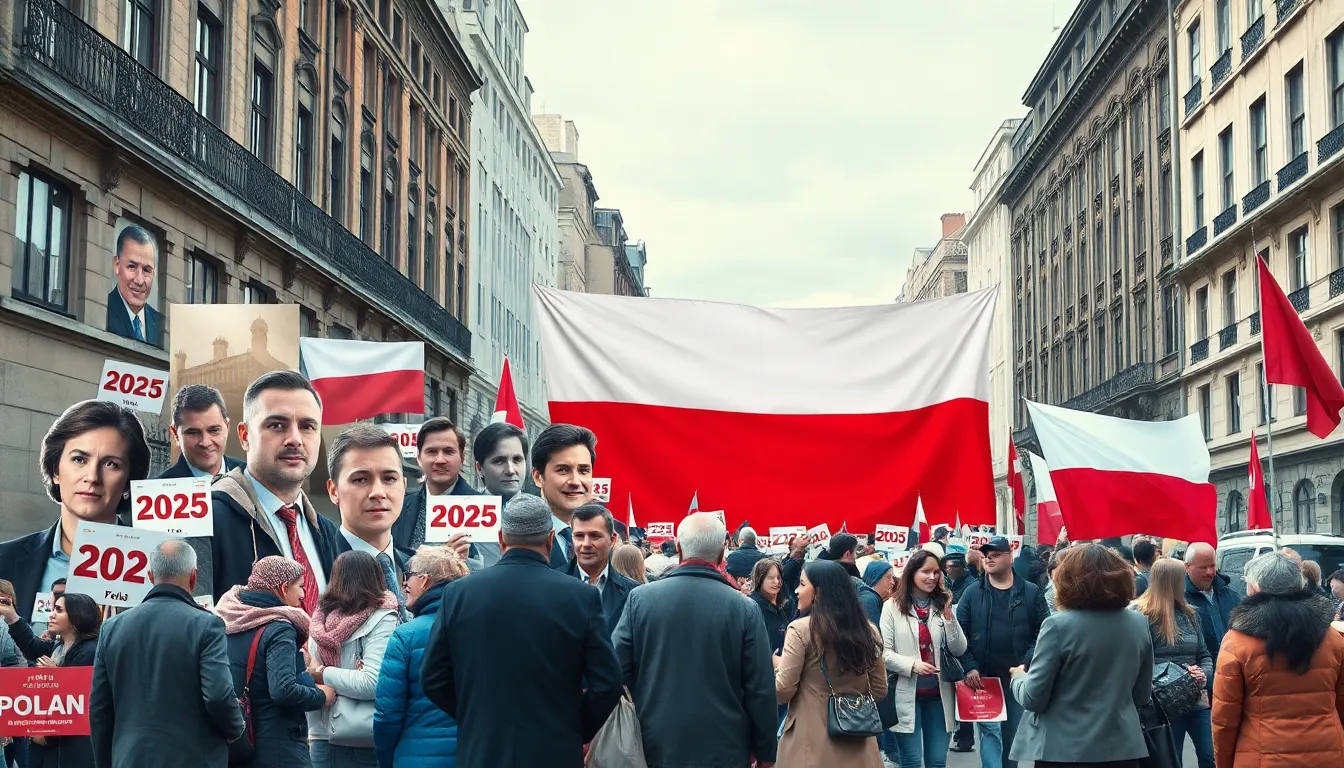Table of Contents
ToggleAs Poland gears up for its 2025 presidential election, excitement buzzes in the air. Voters are sharpening their pencils and practicing their best signature for the ballot. But wait—when exactly is the big day? Mark your calendars, folks, because this isn’t just any event; it’s a chance to shape the future of a nation.
Overview of Poland Presidential Election 2025
The Poland presidential election scheduled for 2025 captures significant attention from citizens and political analysts alike. Voters express eagerness to participate in a process seen as crucial for shaping national policies and governance. Various candidates emerge from different political factions, each presenting distinct platforms that appeal to their supporters.
Election day occurs on June 6, 2025. Preparations for the election intensify as this date approaches. Poland’s electoral commission oversees the logistics to ensure everything runs smoothly on that day. Polling stations across cities and towns will facilitate voter participation, encouraging civic engagement.
Candidates will undergo extensive campaigning leading up to the election. Debates and public forums provide opportunities for voters to learn about proposed policies and priorities. Engaging with communities, candidates aim to address pressing concerns such as economic stability, healthcare, and international relations.
As the date draws nearer, analysts will closely monitor public opinion polls to gauge shifts in voter sentiment. Unforeseen developments may arise, impacting candidate popularity and voter turnout. The excitement surrounding this election foreshadows its potential to redefine political landscapes in Poland.
Voter turnout historically influences election outcomes. High participation rates signal strong democratic engagement. Observers expect significant interest in the 2025 election, highlighting its importance in Poland’s political history.
Significance of the Election

The 2025 presidential election in Poland holds substantial significance for the nation’s trajectory. High voter participation in this election could shape not only the administration but also policies that impact citizens directly.
Impact on Domestic Policies
This election affects key domestic policies significantly. Candidates are presenting varied platforms focused on economic stability, healthcare improvements, and social welfare reforms. Each platform reflects different priorities, addressing issues like unemployment rates and access to medical services. Voters’ choices will drive legislative priorities that influence daily life, from job creation to healthcare accessibility. The outcome may also alter the balance between progressive and conservative policies shaping Poland’s future.
Influence on International Relations
International relations will experience a shift depending on the election’s results. Candidates’ stances on the European Union, NATO, and global trade agreements will guide Poland’s foreign policy direction. Choices regarding alliances and diplomatic strategies could redefine Poland’s role on the world stage. A newly elected president might prioritize closer ties with certain countries or seek to adjust Poland’s stance in regional conflicts. Overall, the election’s outcomes will have lasting implications for both regional stability and international partnerships.
Key Dates and Timeline
The 2025 presidential election in Poland is set for June 6. This date marks a significant moment for voters to express their opinions and influence the country’s future.
Official Election Date
The official election date is June 6, 2025. Voters across Poland will head to the polls to choose their next president. Anticipation is building among citizens as they prepare for the elections. Engagement from the public increases as the date approaches, making it a focal point for political activity.
Important Milestones Leading to the Election
Several crucial milestones lead up to the election. Candidate nominations occur in early 2025, allowing potential leaders to present their platforms. Campaigning kicks off shortly after nominations, with candidates participating in debates and public forums. Public opinion polls will shape strategies, providing insights into voter sentiment. Election day logistics are also crucial, with the electoral commission ensuring polling stations are ready for high turnout. Each of these milestones plays a vital role in setting the stage for the election.
Major Candidates and Political Parties
Candidates are emerging ahead of Poland’s presidential election on June 6, 2025. The political landscape features a mix of incumbents and challengers, each aiming to shape Poland’s future.
Current Incumbent and Challengers
The current incumbent, President Andrzej Duda, seeks re-election under the Law and Justice Party (PiS). Significant challengers include Donald Tusk, the leader of the Civic Coalition, who emphasizes liberal reforms. Additionally, Krzysztof Bosak from the Confederation Party presents a right-wing alternative, advocating for national sovereignty. Emerging candidates may also influence the campaign, bringing new ideas and perspectives to voter discussions. Candidates will likely participate in debates to highlight their distinct positions on economic, social, and foreign issues.
Political Party Platforms
Law and Justice Party (PiS) focuses on social welfare and conservative values. Civic Coalition promotes progressive policies aimed at enhancing democracy and social justice. The Left Party emphasizes workers’ rights and equitable wealth distribution. Confederation advocates for free-market principles and national independence. Each party’s platform aims to address pressing issues in economic stability, healthcare, and international relations. As the election date approaches, coalitions may form to strengthen voter appeal and maximize influence over policy-making choices.
Poland’s presidential election on June 6, 2025, is set to be a pivotal moment in the country’s political journey. With various candidates vying for the presidency, voters will have the chance to shape policies that resonate with their values and aspirations. The enthusiasm surrounding the election reflects a strong desire for change and engagement in the democratic process.
As the campaign unfolds, the focus will remain on key issues that matter to citizens. The outcome of this election could redefine Poland’s political landscape and influence its future direction on both domestic and international fronts. With high voter turnout anticipated, the stakes are higher than ever, making this election a significant event in Poland’s history.



